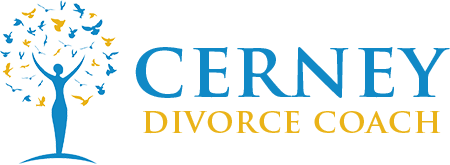Therapy for Couples on the Brink

Therapy for Couples on the Brink
For couples who find themselves at a crossroads in their marriage, Ann Cerney offers wise counsel and useful therapy.
As every relationship falls somewhere upon a continuum, Ann Cerney offers couples three types of counseling. Each type of counseling is targeted to couples at different points of the continuum.
- Couples’ Coaching
- Discernment Counseling
- Divorce Coaching
asdfasdf
Your relationship has become rigid, fixed. You long for more spontaneity, intimacy, stronger communication. You want to feel excited and optimistic about your future together.
Taking care of your most important relationship will yield high rewards. Invest in what matters most to you.
- Effective Communication Tools
- Making requests
- Using Soft start up
- Avoiding shut-down traps
- Balancing Dynamics
- Busting status quo’s
- Forgiveness
- Recommitting
- Celebration and joy
- Couple projects
- Continued growth
Developing a shared vision, learning to address conflict as it arises, noticing and making bids for connection, and repairing injuries to the attachment bond are essential skills for a healthy couple.
In couples therapy, Ann brings in findings from Dr. John and Julie Gottman’s research, as well as Dr. Stan Tatkin’s research on attachment styles in couples. Ann participates in ongoing training with Dr. Bill Doherty at the Relationship Institute at the University of Minnesota. She views couples through a systemic lens, called the Family FIRO Model, rather than one of individual pathology. The focus is on interactional patterns that lead to and represent problems in the two-person system of the couple.
Discernment Counseling – Developed by Dr. Bill Doherty at the University of Minnesota, in the study titled “Couples on the Brink”
When one spouse is not sure they want to stay married AND doubts that couples therapy can help, then Discernment Counseling is exactly where you belong.
The leaning-out partner is supported where they are emotionally, and the leaning-in spouse is equally supported in their own emotional state. Discernment Counseling avoids starting half-hearted couples therapy and accepts ambivalence rather than trying to work around it or overcome it.
Leaning Out Partner –
You are strongly considering ending your marriage/LTR. This is a major decision, one you never wanted to make. Understandably, you are
- Paralyzed by fear and confusion
- Hopeless about a future together
- Ambivalent about leaving, or staying
Leaning In Partner –
Your spouse wants a divorce/separation. You do not want your marriage/LTR to end. Even if you saw this coming, you feel
- Powerless, like you have no choice in the matter
- Rejection over being ‘left’
- Devastated and confused, what did you do ‘wrong’?
Ending a marriage or LTR is traumatic regardless of whether you’re leaning in or leaning out. Discernment counseling is a brief, time limited process – no more than 5 sessions. The goal is to come to a decision about how to proceed with the relationship.
There are 3 paths from which to choose:
- Status Quo – do nothing, do not separate, divorce, or commit to working on the relationship
- Separate/Divorce – define and take next steps toward this decision
- Recommit to the relationship – Work on the relationship 100%, all discussion of leaving off the table, for a specified period of time. Reassess at the end of that time.
A majority of the work is done with me 1:1, though you will come in together (or zoom). At every meeting, we intermix short exposures together as a couple to summarize and gain understanding of the 1:1 discussions. Discernment counseling is an evidence-based process, developed by Bill Doherty, at the Doherty Institute, the University of Minnesota.
If you want to understand exactly what happened in and to your relationship, and especially your role in its evolution, Discernment Counseling is an excellent solution.
If you choose path 3, staying together, you will commit to working on the relationship with the knowledge gained in this process. If you decide to separate or divorce, path 2, you will both be better equipped to avoid making the same mistakes in future relationships. That is worth the work.
Divorce Coaching
Pre Divorce – Navigator
Ann works with individuals and couples to educate them about the various divorce processes available.
As a Navigator, Ann will perform a 90-minute assessment, taking a history of your marriage, conflict style, family strengths, schedules, resources, and special needs. Both you and your spouse must be present for this assessment.
There are several factors to take into consideration to determine which divorce option is optimal for each family and their unique circumstances.
Upon conclusion of the assessment, Ann will make a recommendation to you and your partner as to which process or processes you should consider for your divorce.
Divorce Coaching
Ann is a trained Collaborative Divorce Coach. Ann has been involved as part of a Collaborative Divorce team on 50+ cases since 2007. Trained in Collaborative Divorce in 2006, Ann has been a member of the International Academy of Collaborative Professionals and regional practice groups since that time. Link to my collaborative page at CPS/MARIN.
Divorce coaching can help minimize the confusion and feelings of powerlessness that often accompany divorce. In traditional cases, Ann often accompanies her clients in meetings with attorneys, and has supported them in court.
The emotional aspect of divorce is often most overlooked, and plays a large part in the outcome of every case. It’s helpful to have someone along for the journey who has experience, offers sound advice, and can help set realistic expectations.
